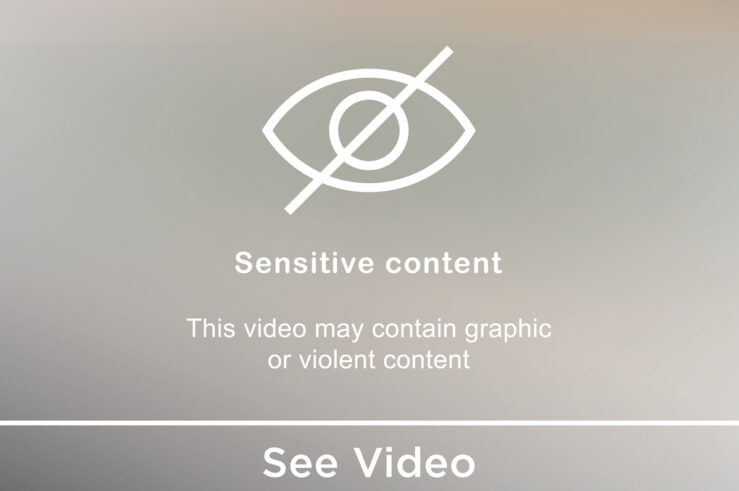
As 2023 draws to a close, we wanted to reflect on a year that saw jurisdictions around the world proposing, debating, and (occasionally) enacting digital regulations. Some of these initiatives amended existing ex-post competition laws. Others were more ambitious, contemplating entirely new regulatory regimes from the ground up.
With everything going on, it can be overwhelming even for hardcore antitrust enthusiasts to keep pace with the latest developments. If you have the high-brow interests of a scholar but the jam-packed schedule of a CEO, you have come to the right place. This post is intended to summarize who is doing what, where, and what to make of it.
Status of Tech Regulation Around the World
European Union
In the European Union—the patient zero of tech regulation—two crucial pieces of legislation passed this year: the Digital Markets Act (DMA) and the Digital Services Act (DSA).
But notably, the EU is just now—i.e., six months before the act is set to apply in full to all digital “gatekeepers”—launching a consultation on the DMA’s procedural rules (a draft is available here). Many of those procedural questions remain exceedingly fuzzy (substantive ones, too), such as, e.g.—the role of the advisory committee, the role of third parties in proceedings, national authorities’ access to data gathered by the Commission, and the role to be played (if any) by the European Competition Network. Further, only now is a DMA enforcement unit being created within the Commission, although it is also unclear whether it will have the staffing capacity to satisfy the tight deadlines.
Whether or not the implementing regulation ultimately resolves all of these questions, they should have been settled much sooner. But as is becoming customary in tech regulation, it seems that the political urge to “do something” has once again prevailed over careful consideration and foresight.
United Kingdom
In the United Kingdom, legislation to empower the Competition and Markets Authority’s (CMA) Digital Markets Unit (DMU) is set to be brought to Parliament this term, meaning that it may be discussed in the next two months. Of all the “pending” antitrust bills around the world, this is probably the most likely to be adopted. Although it dropped an earlier dubious proposal on mergers, there remain several significant concerns with the DMU (see here and here for previous commentary). For example, the DMU’s standard of review is surprisingly truncated, considering the expansive powers that would be bestowed on the agency. The DMU would apply the strategic market significance (SMS) tag to entire firms and not just to those operations where the firm may have market power. Moreover, the DMU proposal shows little concern for due process.
One looming question is whether the UK will learn from the EU’s example, and resolve substantive and procedural questions well ahead of imposing any obligations on SMS companies. In the end, whatever the UK does or doesn’t do will have reverberations around the globe, as many countries appear to be adopting a DMA-style designation process for gatekeepers but imposing “code of conduct” obligations inspired by the DMU.
United States
Across the pond, the major antitrust tech bills introduced in Congress have come to a standstill. Despite some 11th hour efforts by their sponsors, neither the American Innovation and Choice Online Act, nor the Open App Markets Act, nor the Journalism Competition and Preservation Act made the cut to be included in the $1.7 trillion, 4,155-page omnibus bill that will be the last vote taken by the 117th Congress. With divided power in the 118th Congress, it’s possible that the push to regulate tech might fizzle out.
What went wrong for antitrust reformers? Republicans and Democrats have always sought different things from the bills. Democrats want to “tame” big tech, hold it accountable for the proliferation of “harmful” content online, and redistribute rents toward competitors and other businesses across the supply chain (e.g., app developers, media organizations, etc.). Republicans, on the other hand, seek to limit platforms’ ability to “censor conservative views” and to punish them for supposedly having done so in the past. The difficulty of aligning these two visions has obstructed decisive movement on the bills. But, more broadly, it also goes to show that the logic for tech regulation is far from homogenous, and that wildly different aims can be pursued under the umbrella of “choice,” “contestability,” and “fairness.”
South Africa
As my colleague Dirk Auer covered yesterday, South Africa has launched a sectoral inquiry into online-intermediation platforms, which has produced a provisional report (see here for a brief overview). The provisional report identifies Apple, Google, Airbnb, Uber Eats, and South Africa’s own Takealot, among others, as “leading online platforms” and offers suggestions to make the markets in which these companies compete more “contestable.” This includes a potential ex ante regulatory regime.
But as Dirk noted, there are certain considerations the developing countries must bear in mind when contemplating ex ante regimes that developed countries do not (or, at least, not to the same extent). Most importantly, these countries are typically highly dependent on foreign investment, which might sidestep those jurisdictions that impose draconian DMA-style laws.
This could be the case with Amazon, which is planning to launch its marketplace in South Africa in February 2023 (the same month the sectoral inquiry is due). The degree and duration of Amazon’s presence might hinge on the country’s regulatory regime for online platforms. If unfavorable or exceedingly ambiguous, the new rules might prompt Amazon and other companies to relocate elsewhere. It is notable that local platform Takealot has, to date, demonstrated market dominance in South Africa, which most observers doubt that Amazon will be able to displace.
India
No one can be quite sure what is going on in India. There has been some agitation for a DMA-style ex ante regulatory regime within the Parliament of India, which is currently debating an amendment to the Competition Act that would, among other things, lower merger thresholds.
More drastically, however, a standing committee on e-commerce (where e-commerce is taken to mean all online commerce, not just retail) issued a report that recommended identifying “gatekeepers” for more stringent supervision under an ex ante regime that would, e.g., bar companies from selling goods on the platforms they own. At its core, the approach appears to assume that the DMA constitutes “best practices” in online competition law, despite the fact that the DMA’s ultimate effects and costs remain a mystery. As such, “best practices” in this area of law may not be very good at all.
Australia
The Australian Competition and Consumer Commission (ACCC) has been conducting a five-year inquiry into digital-platform services, which is due in March 2025. In its recently published fifth interim report, the ACCC recommended codes of conduct (similar to the DMU) for “designated” digital platforms. Questions surrounding the proposed regime include whether the ACCC will have to demonstrate effects; the availability of objective justifications (the latest report mentions security and privacy); and what thresholds would be used to “designate” a company (so far, turnover seems likely).
On the whole, Australia’s strategy has been to follow closely in the footsteps of the EU and the United States. Given this influence from international developments, the current freeze on U.S. tech regulation might have taken some of the wind out of the sails of similar regulatory efforts down under.
China
China appears to be playing a waiting game. On the one hand, it has ramped up antitrust enforcement under the Anti-Monopoly Law (AML). On the other, in August 2022, it introduced the first major amendment since the enactment of the AML, which included a new prohibition on the use of “technology, algorithms and platform rules” to engage in monopolistic behavior. This is clearly aimed at strengthening enforcement against digital platforms. Numerous other digital-specific regulations are also under consideration (with uncertain timelines). These include a platform-classification regime that would subject online platforms to different obligations in the areas of data protection, fair competition, and labor treatment, and a data-security regulation that would prohibit online-platform operators from taking advantage of data for unfair discriminatory practices against the platform’s users or vendors.
South Korea
Seoul was one of the first jurisdictions to pass legislation targeting app stores (see here and here). Other legislative proposals include rules on price-transparency obligations and the use of platform-generated data, as well as a proposed obligation for online news services to remunerate news publishers. With the government’s new emphasis on self-regulation as an alternative to prescriptive regulation, however, it remains unclear whether or when these laws will be adopted.
Germany
Germany recently implemented a reform to its Competition Act that allows the Bundeskartellamt to prohibit certain forms of conduct (such as self-preferencing) without the need to prove anticompetitive harm and that extends the essential-facility doctrine to cover data. The Federal Ministry for Economic Affairs and Climate Action (BMWK) is now considering further amendments that would, e.g., allow the Bundeskartellamt to impose structural remedies following a sectoral inquiry, independent of an abuse; and introduce a presumption that anticompetitive conduct has resulted in profits for the infringing company (this is relevant for the purpose of calculating fines and, especially, for proving damages in private enforcement).
Canada
Earlier this year, Canada reformed its abuse-of-dominance provisions to bolster fines and introduce a private right of access to tribunals. It also recently opened a consultation on the future of competition policy, which invites input about the objectives of antitrust, the enforcement powers of the Competition Bureau, and the effectiveness of private remedies, and raises the question of whether digital markets require special rules (see this report). Although an ex-ante regime doesn’t currently appear to be in the cards, Canada’s strategy has been to wait and see how existing regulatory proposals play out in other countries.
Turkey
Turkey is considering a DMA-inspired amendment to the Competition Act that would, however, go beyond even the EU’s ex-ante regulatory regime in that it would not allow for any objective justifications or defenses.
Japan
In 2020, Japan introduced the Act on Improving Transparency and Fairness of Digital Platforms, which stipulates that designated platforms should take voluntary and proactive steps to ensure transparency and “fairness” vis-a-vis businesses. This “co-regulation” approach differs from other regulations in that it stipulates the general framework and leaves details to businesses’ voluntary efforts. Japan is now, however, also contemplating DMA-like ex-ante regulations for mobile ecosystems, voice assistants, and wearable devices.
Six Hasty Conclusions from the Even Hastier Global Wave of Tech Regulation
- Most of these regimes are still in the making. Some have just been proposed and have a long way to go until they become law. The U.S. example shows how lack of consensus can derail even the most apparently imminent tech bill.
- Even if every single country covered in this post were to adopt tech legislation, we have seen that the goals pursued and the obligations imposed can be wildly different and possibly contradictory. Even within a given jurisdiction, lawmakers may not agree what the purpose of the law should be (see, e.g., the United States). And, after all, it should probably be alarming if the Chinese Communist Party and the EU had the same definition of “fairness.”
- Should self-preferencing bans, interoperability mandates, and similar rules that target online platforms be included under the banner of antitrust? In some countries, like Turkey, rules copied and pasted from the DMA have been proposed as amendments to the national competition act. But the EU itself insists that competition law and the DMA are separate things. Which is it? At this stage, shouldn’t the first principles of digital regulation be clearer?
- In the EU, in particular, multiple overlapping ex-ante regimes can lead to double and even triple jeopardy, especially given their proximity to antitrust law. In other words, there is a risk that the same conduct will be punished at both the national and EU level, and under the DMA and EU competition rules.
- In light of the above, global ex-ante regulatory compliance is going to impose mind-boggling costs on targeted companies, especially considering the opacity of some provisions and the substantial differences among countries (think, e.g., of Turkey, where there is no space for objective justifications).
- There are always complex tradeoffs to be made and sensitive considerations to keep in mind when deciding whether and how to regulate the most successful tech companies. The potential for costly errors is multiplied, however, in the case of developing countries, where there is a realistic risk of repelling “dominant” companies before they even enter the market (see South Africa).
Some of the above issues could be addressed with some foresight. That, however, seems to be sorely lacking in the race to push tech regulation through the door at any cost. As distinguished scholars like Fred Jenny have warned, caving to the political pressure of economic populism can come at the expense of competition and innovation. Let’s hope that is not the case here, there, or anywhere.




